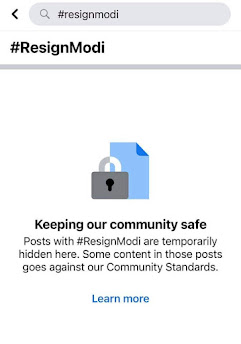It is generally known that John Stuart Mill spent his working career in the service of the East India Company, but very little has been written about him in this capacity. As an administrative official of the company, the home government of India, John Mill's activities have been greatly overshadowed by the influence exerted upon Indian policies by his father, James Mill, historian of British India and a member of the Examiner's Office of the Company from 1819 until his death in 1836. Like his father, John Stuart recognized the company's government of India for what it actually was—a despotism of an alien race, which, despite the good accomplished by it in the last decades of its existence, was established by conquest, treaty, and annexation. And yet, he spent almost half of his life as an official of this establishment, drafting dispatches to the India government, and, in defence of the company's rule against extinction by Parliament, wrote what Lord Grey described as the ablest state paper he had ever read.
Keller:
We imagine that platforms can bring the whole sprawling chaos of human behavior into compliance with the law. Make our lives policeable, and policed, to a degree no govt in history could have imagined. Not only do we seem to think it's possible– we think it's a good idea.
Whaddaya mean "we" Kemosabe?
 |
| Facebook India (image added 4/29) |
“Our main concern is the secrecy in the censorship,” said Apar Gupta, executive director of New Delhi-based Internet Freedom Foundation, a digital-rights organization. “Any legal order for directing blocking of websites should contain reasoning and be made public. Neither of these steps are being carried out right now.”
Evelyn Douek of Harvard Law. tweets the above and adds: "The total opacity is one of the most troubling parts"
The blocking itself is a problem.
The Wire (India): At Government Request, Twitter Takes Down Some Tweets Critical of Official COVID Handling
New Delhi: Twitter has withheld from public view around 50 tweets in India, a good chunk of which criticised the manner in which the Narendra Modi government has handled the COVID-19 pandemic.
India is currently in the midst of a brutal ‘second wave’, with daily infections passing 300,000, and the total number of daily deaths running over 2,000.
According to Twitter’s filings with the Lumen database [two links]– a transparency initiative run by Harvard University’s Berkman Klein Centre which tracks content removal requests – the affected tweets have been taken down in response to a request by the Indian government....
Significantly, the content removal list uploaded by Twitter also includes a handful of tweets put out by verified accounts. This includes politicians like the Congress’s Revanth Reddy and Pawan Khera, and minister in the West Bengal government Moly Ghatak.
Tweets put out by filmmaker Avinash Das and filmmaker Vinod Kapri have also been removed from public view in India.
Turkey was demanding the social media giant block Facebook posts from the People’s Protection Units, a mostly Kurdish militia group the Turkish government had targeted. Should Facebook ignore the request, as it has done elsewhere, and risk losing access to tens of millions of users in Turkey? Or should it silence the group, known as the YPG, even if doing so added to the perception that the company too often bends to the wishes of authoritarian governments?It wasn’t a particularly close call for the company’s leadership, newly disclosed emails show.“I am fine with this,” wrote Sheryl Sandberg,...
NYT: Is an Activist’s Pricey House News? Facebook Alone Decides.
On Wednesday, I learned a new way to get a news article erased from much of the internet.
If the article shows your home or apartment, says what city you’re in and you don’t like it, you can complain to Facebook. Facebook will then ensure that nobody can share the article on its giant platform and, as a bonus, block you from sending it to anyone in Facebook Messenger.
I learned this rule from a cheerfully intense senior Facebook lawyer. The lawyer, who was supplied by Facebook’s public relations department on the condition she could speak only anonymously to discuss a specific case, was trying to explain why the service had expunged a meanspirited New York Post article about a Black Lives Matter activist’s real estate purchases.
The policy sounds crazy because it could apply to dozens, if not hundreds, of news articles every day — indeed, to a staple of reporting for generations that has included Michael Bloomberg’s expansion of his townhouse in 2009 and the comings and goings of the Hamptons elites. Alex Rodriguez doesn’t like a story that includes a photo of him and his former fiancée, Jennifer Lopez, smiling in front of his house? Delete it. Donald Trump is annoyed about a story that includes a photo of him outside his suite at Mar-a-Lago? Gone. Facebook’s hands, the lawyer told me, are tied by its own policies.
NY Post: Social media again silences The Post for reporting the news.

No comments:
Post a Comment
Comment moderation is enabled.